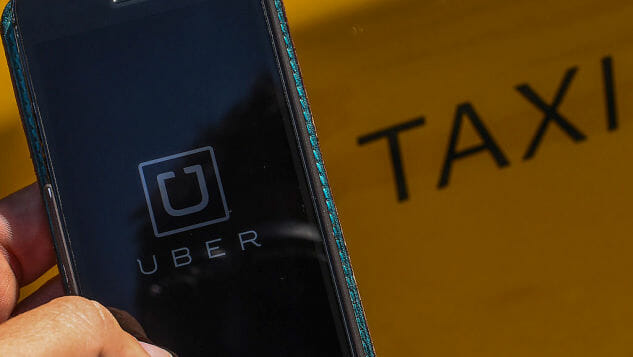Even with a New CEO, Uber is Still Doomed
The wheel turns
David Ramos / Getty Business Features Uber
Uber has picked a new CEO. Will the corporation head in a new direction, or return to its old tricks?
The embattled tech giant was recently laid low for a variety of reasons: market underperformance, lack of return, scandals about its culture of sexism, and the behavior of its departed headman, the highly questionable Travis Kalanick. Uber’s backers named Expedia’s CEO, a forty-eight-year old Iranian-American named Dara Khosrowshahi, to the driver’s seat. Expedia does travel, but they don’t do what Uber does—good for Expedia. More than one commenter has pointed out that the appointment of Khosrowshahi is an odd choice. But not as strange as it first appears.
As the Post notes:
Yet Khosrowshahi, 48, has deep ties to Silicon Valley, many of them through his own family. Indeed, Khosrowshahi may have one of the most extensive family networks of anyone working in the technology industry today — six of his relatives are highly successful Silicon Valley entrepreneurs or executives with strong ties to tech.
This may explain why Uber, with its fetishization of bro culture and who’s-in status, has turned to a man who is part of the Silicon Valley aristocracy:
His brother Kaveh Khosrowshahi is managing director of Allen & Co., the influential boutique investment bank the runs the Sun Valley conference … His cousin Amir Khosrowshahi co-founded an artificial intelligence company, Nervana, that was acquired by Intel last year for $400 million (He is now an executive in Intel’s artificial intelligence unit).
His cousins the Partovis were early investors in many different tech companies. Two of his other relations are Google Execs:
Two other family members are Google executives. One cousin, Farzad Khosrowshahi, invented the software tool now known as Google spreadsheets, and is the executive that runs Google Docs. Another family member, Avid Larizadeh Duggan, is a general partner at Google Ventures, the search giant’s venture capital arm that invests in startups (Uber was an investment in the Google ventures portfolio).
It will surprise no one that “Many of the cousins went to the same high school, the Hackley School, a private prep school in Tarrytown, NY.” The Atlantic described Khosrowshahi as the opposite of Kalanick, but it seems clear this difference is mostly in temperament. In terms of being to the elite, they are strikingly similar.
The Atlantic continues:
His selection represents a “truce” among rival coalitions on the dysfunctional Uber board. Some investors preferred Meg Whitman, the CEO of HP, according to reports in Recode. The selection of one of the world’s most accomplished female business leaders might have sent a strong signal about Uber’s reinvention following a scandal-ridden year rife with accusations of systemic sexism against the company’s leaders. Other board members, including former CEO Travis Kalanick, are said to have preferred Jeff Immelt, the former chief executive of GE. Kalanick resigned from the company in June under intense pressure from investors, some of whom are still trying to minimize his involvement with the company.
Dysfunctional is a mild way to put it. Uber’s whole existence, from its scabbing to its parties, is dysfunctional. It is dysfunctional on financial, practical, moral, and cultural levels. Their model’s doomed. Uber is a business that makes money from living large off its investors, and attempting to break taxi unions. A quieter Uber is still Uber in every way that counts.
Even if the new CEO is a fresh face, there is still desperation and befuddlement underneath the smile. Will Uber make profit for its investors, who have invested obscene amounts of capital in this (essentially impossible) venture? Will taxi drivers be driven out of business in a gentler, kinder, way? The answer to both is no. Uber has appointed a new driver, but its road remains crooked, and leads to a cliff. What does it matter if you get there smoother? The fall remains. Ridesharing always ends the same way: nobody leaves the vehicle any richer.